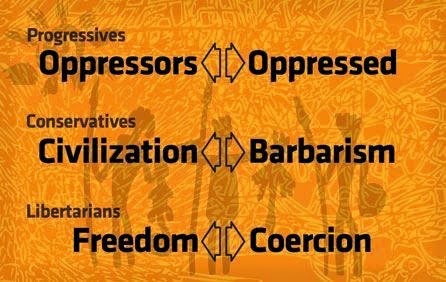I’ll provide a post-mortem on my appearance at this panel on whether or not to break up the banks after I’ve had more time to reflect.
Prior to the panel, I Googled one of the other panelists, and I found that he had hopes for the Volcker Rule, which would try to keep banks from doing proprietary trading. I am not a fan of the Volcker Rule. In fact, in recent years, I have not been a fan of Paul Volcker, because I think he has what I call a low geek quotient.
What I call Geek Finance has emerged over the past thirty years. It is used extensively in derivatives markets and in mortgage finance. It involves very complex probabilistic simulation models that are used to assign values to long-term, deep out-of-the-money options. Some thoughts.
1. Is Geek Finance a good thing? On the one hand, I would say that we need some rational way of valuing these sorts of options. On the other hand, it is important to be aware of the assumptions that go into such models and not to have too much faith in their precision. In the case of mortgage default risk, for example, it matters whether you assume that house prices across different locations are highly correlated or nearly independent. It matters whether you assume that a large nationwide house price decline is practically impossible or just somewhat unlikely.
2. Shortly after the financial crisis, Robert Merton, who shared the Nobel Prize for developing option price theory, gave a lecture in which he suggested that many top corporate executives did not really understand what was being done by the practitioners who worked for them. I termed this the Suits vs. Geeks divide. Many CEOs, and also many top officials in Washington, had low geek quotients.
3. Whether you love or hate geek finance, whether you want to tolerate it or would seek to get rid of it, you have to understand it. I think that Suits with low geek quotients are dangerous.
4. In 2003, Freddie Mac’s Board ousted a CEO with a high geek quotient and replaced him with a CEO with a low geek quotient. The main change that resulted from that was that Freddie Mac greatly increased its exposure to risky loans.
5. In 2006, Goldman Sachs lost a CEO with a low geek quotient. Subsequently, and this may have been purely coincidental, Goldman was relatively good at reducing its exposure in the mortgage market.
6. The original idea of TARP, which was to use government funds to buy toxic assets, had a low geek quotient. As a geek, I did not think it was workable. Of course, this idea was never implemented. Instead, the TARP money pile was used to inject capital into banks, to restructure GM and Chrysler, and ….well, whatever the President and Treasury Secretary felt like spending it on, it seems.
7. Back to the Volcker Rule. I don’t think it can fly. My prediction is that they will get it off the ground to save face, then it will wobble at low altitude for a bit, and within a few years you will find it resting on the ground. I imagine a sequence of conversations going something like this:
Volcker rulers: Banks, you cannot touch securities.
Banks: But you do want us to hedge our risks, don’t you?
Volcker rulers: Hmmm. OK, but you have to hold your hedging instruments until they mature.
Banks: But when interest rates change, you do want us to rebalance, don’t you?
Volcker rulers: Hmmm. OK, but…
etc., etc., until there is no rule left

